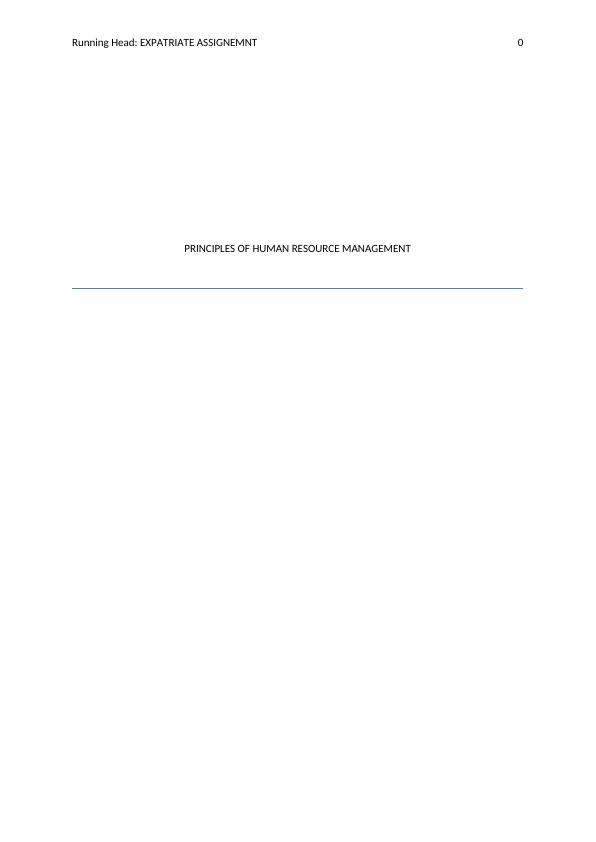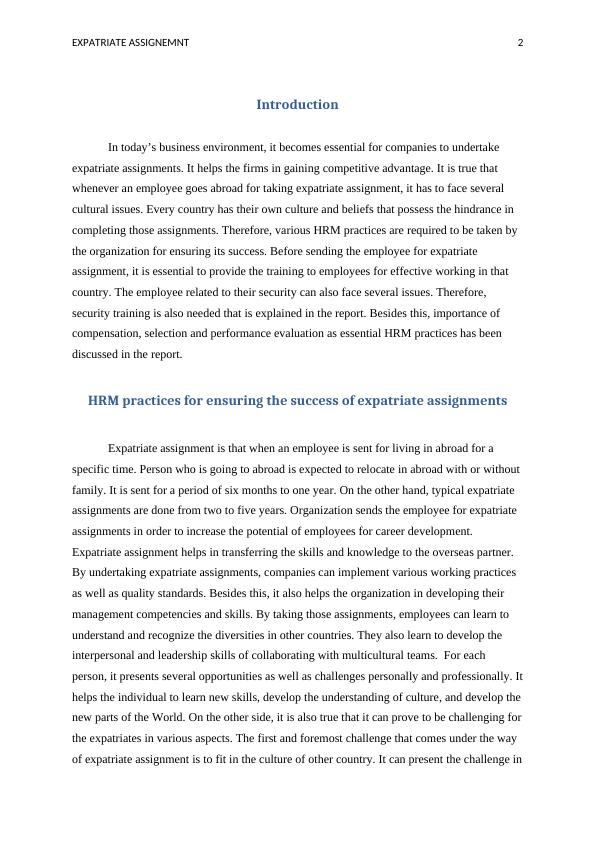HRM practices for ensuring the success of expatriate assignments
Added on 2023-04-22
9 Pages2704 Words249 Views
End of preview
Want to access all the pages? Upload your documents or become a member.
International Human Resource Management
|6
|1760
|290
International Human Resource Management: Appraisal of Expatriate Managers, Training Challenges, Compensation Practices, Bribery Criminalization, and HRM Challenges in SMEs
|13
|3178
|422
What Is Resource Management and Why Is it Important?
|12
|3590
|18
Managing Expatriates in Multinational Companies
|15
|3497
|380
Strategic Human Resource Management (Assignment 2)
|10
|3517
|35
International Management: Challenges and Solutions for Expatriate Management
|10
|3224
|116



